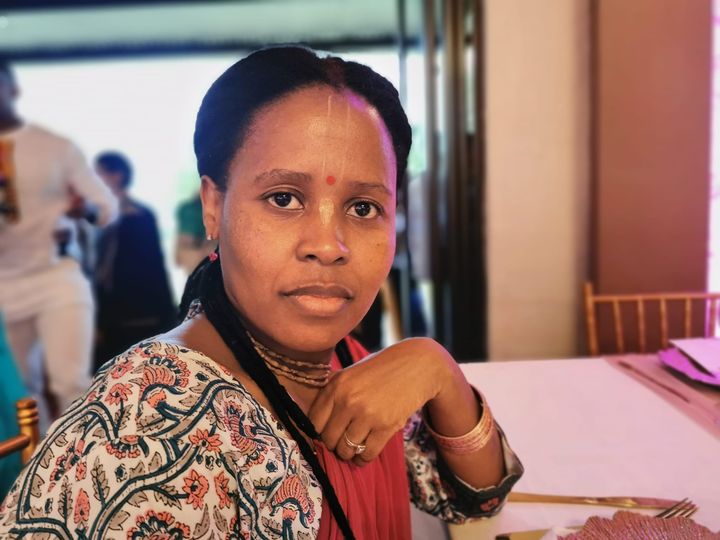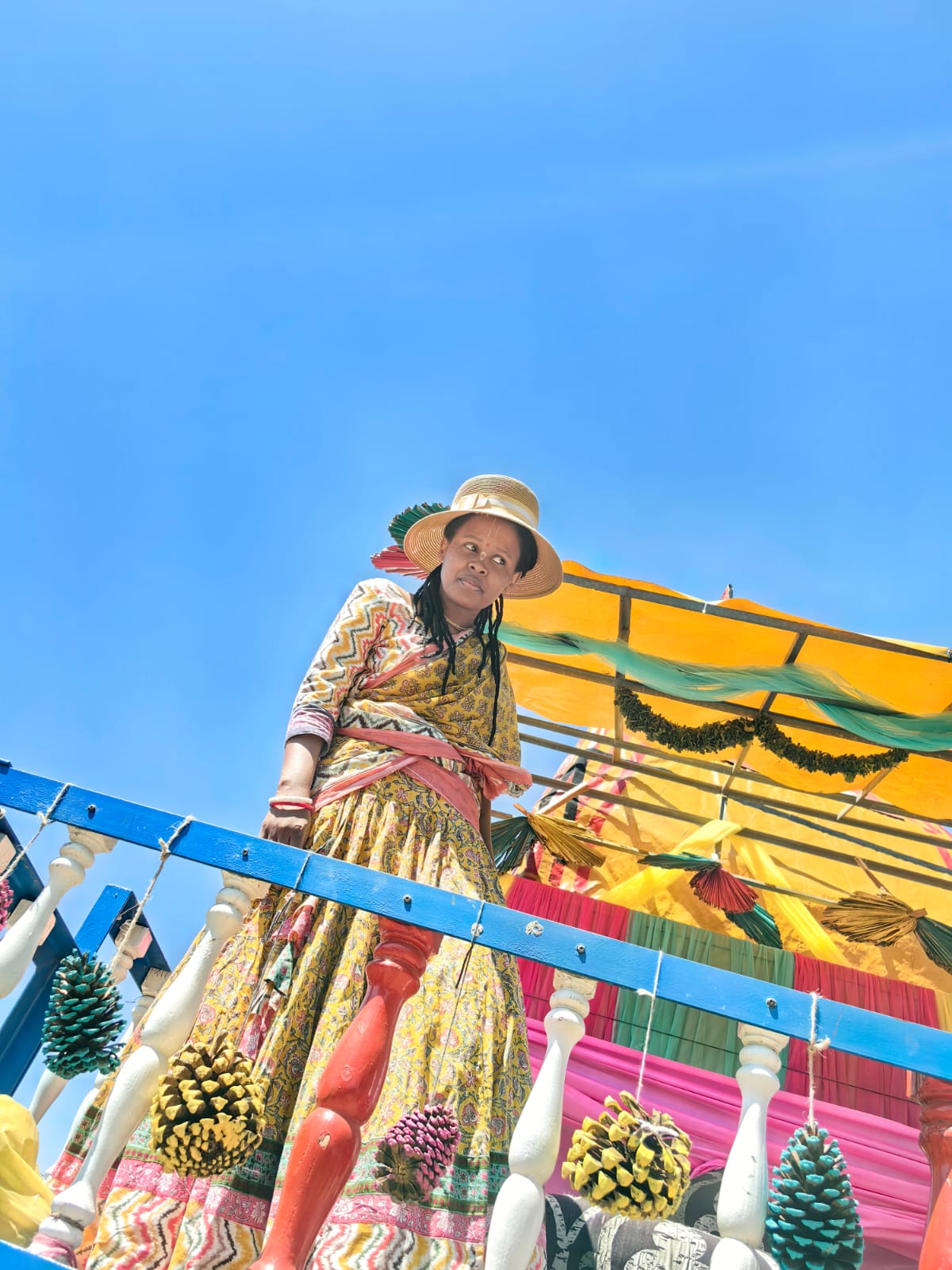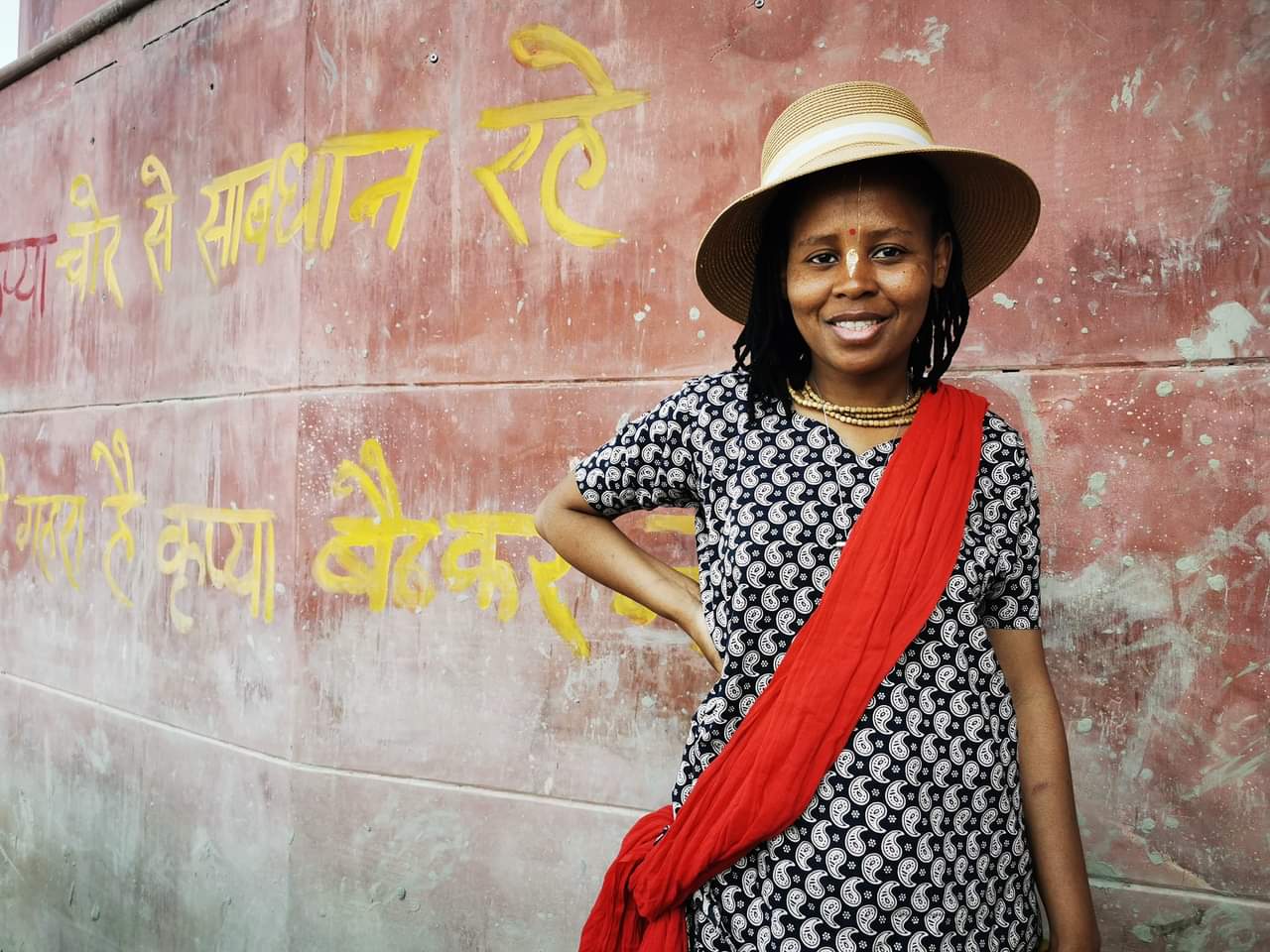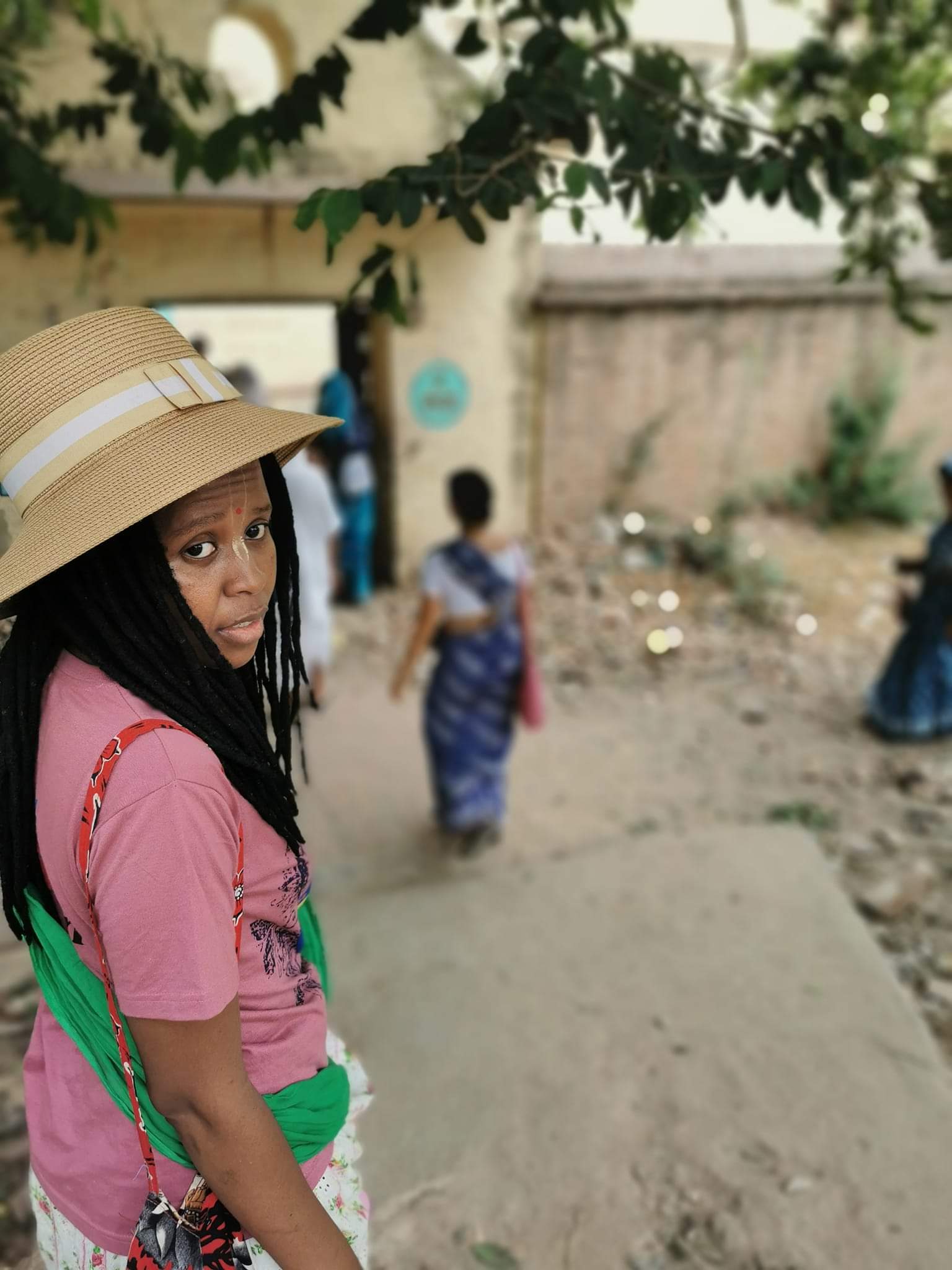Journey of the First African Woman Temple President in South Africa
By Kulavati Krishnapriya Devi Dasi, ISKCON News Staff Writer | Dec 26, 2023

Manukanya Devi Dasi, the trailblazing African woman and the first female Temple President at WuSA House in South Africa, has a captivating spiritual journey that transcends cultural and gender boundaries. Her story unfolds with a childhood fascination for the saree, inspired by the Hare Krishna devotees she encountered at the age of nine. This initial attraction led her to the temple, where she discovered a profound philosophy that resonated deeply with her.
Despite joining with a specific focus on donning the saree, Manukanya’s journey took an unexpected turn as she delved into the teachings of Krishna consciousness. Guided by the late Mother Srimati, a pivotal figure in the ISKCON Pretoria temple, Manukanya found a mentor who played a crucial role in establishing the temple as a successful student-based preaching center in South Africa.
Initiated by His Holiness Kadamba Kanana Swami, Manukanya’s spiritual journey unfolded across continents. While studying in Belgium, she engaged in diverse services, including Pujari service and participating in the traveling Harinam Sankirtan party. Her return to Africa saw her serving in Botswana, later moving to New Jagannath Puri, Phoenix-Durban, and ISKCON Sandton, where she managed the gift shop and Govinda’s restaurant.
Manukanya’s journey is a testament to her persistence in questioning gender disparities within the temple. Unfazed by conventional norms, she discovered her aptitude for practical service, a trait instilled by her spiritual master. From cleaning bathrooms to eventually worshiping deities of Srila Prabhupada and their Lordships, her humility laid the foundation for leadership.
Her most profound experience occurred during her tenure in Radhadesh, where she dressed Gaura-Nitai, fulfilling a heartfelt prayer to connect more intimately with the deities. This deepened her commitment to involving others in devotional service, fostering a sense of community among devotees.
- Decorating the Ratha Yatra Chariot at this year’s Soweto Festival of Chariots.
Acknowledging Srila Prabhupada’s empowerment of women, Manukanya encourages others to believe in themselves and their role in carrying forward his legacy. She emphasizes the importance of cooperation and understanding devotees’ needs in her leadership, fostering an environment conducive to collaboration.
Balancing sadhana and service, Manukanya adheres to a disciplined routine, and during this past month of Kartik – drawing strength from the Damodarashtakam to realign her focus. Her leadership style focuses on identifying and supporting individuals, ensuring a collaborative approach to projects.
The significance of Manukanya’s story lies not only in her personal journey but also in breaking barriers as the first African woman and female Temple President in South Africa. Her dedication to empowering women and spreading Krishna consciousness in previously disadvantaged communities marks a historic milestone for ISKCON in the region.
As she leads WuSA House, an African Preaching initiative, Manukanya remains committed to ensuring the continuity of projects by training successors with a hundred-year plan in mind. Her vision extends beyond her tenure, emphasizing the need for succession plans to prevent projects from faltering when leadership changes.
In a historical context, Manukanya’s position represents a pivotal moment in the forty-plus years of ISKCON’s presence in South Africa, inspiring a new generation and empowering women in communities where opportunities were previously limited. Her journey serves as a beacon of hope, illustrating the transformative power of devotion and determination.
To learn more information about WuSA, visit their Facebook page.



















